Céilí Community Priests
Céilí Community Priests
The Identify and Calling of the Catholic Priesthood.
Msgr Pat, Fr Eamonn and Fr John celebrating Mass
Priesthood of the Most High God {Gen. 14:18}. In our Catholic Tradition there is a very special calling to Ministerial Priesthood. This is distinctive from the priesthood of all baptised people. The following bullet points will briefly outline this distinctive call to Ministerial Priesthood from the Scriptures and the teaching of the Catholic Church.
Minsterial Priesthood in Old Testament
- Priesthood of the Most High God {Gen. 14:18}.
- A sacrificial Priesthood making atonement {Lev.4: 20, 26; 5:6; 19:22}.
- The call to faithfulness in Priesthood {1 Samuel 2:35}.
- Special Priestly Consecration {Exodus 40:14-15}.
- Sacrificial Priesthood – its permanence {Numbers 25:10-13}
Ministerial Priesthood in New Testament
- The starting point in Catholic tradition is Jesus’ appointment of the Twelve, e.g., these had a special place in witnessing to the Resurrection {1Cor. 15}.
- Authority is given to the Twelve in three ways:
– The Worship of the New Covenant – They receive the command to disciple, baptise {Mt. 28:16-20} and to Celebrate the Eucharist {Lk.22:14-20}.
- The Twelve are given a Teaching Role- They are the accredited recipients of the Kerygma and therefore have the duty to insist upon the truth of the gospel. {Jn. 20:19-23; 1Timothy.3: 14-16}.
- The Power of Government is upon the Twelve- They are invested with the full powers of Christ who will rule the new Israel, the Community of the Kingdom. {Mt 28:16-20}.
- In John’s Gospel we find Jesus praying that the Twelve may be consecrated as he is consecrated. {Jn 17}. In this chapter Jesus is presented as a Priestly figure. This chapter can also be paralleled with Is.53 {The Suffering Servant}-Jesus prays that as He is the Lamb of Sacrifice, then the Twelve may be used also as a Sacrificial Priesthood. Jesus, therefore, in John 17 consecrates the twelve in a new way. The Twelve’s consecration is completed in the bestowal of the Holy Spirit for the forgiveness of sins {Jn. 20:19-23}.
The Twelve were “Apostles” or “Go Missioners”
- In the Apostles Jesus left behind a special Ministry of “Presbyter” for the purpose of sanctifying, teaching and governing the Christian Community.
- In the early Church there were basically two types of Presbyters:
It is clear that the job was going to be too much for just the Twelve of them. So, they commissioned others by the “Laying on of Hands”. {Acts 6:1-6; 2 Tm.1:6; 1Tm.4:14.}. This “Ordination” needed to be derived from the Apostles themselves who had already been commissioned. Hence, to this day we have the “Rite of Ordination” and the handing on of Apostolic truths. {2 Tm. 4:1-5}.
- Full time “Itinerant Missioners”.
- Men who worked full time to build up the local Christian Community.
- However, Evangelisation was never to be neglected by the Presbyters.
Ministerial Priesthood in the teaching of the Catholic Church
There has always been from the earliest tradition Priesthood in the Catholic Church. The Church has always viewed Priesthood as a special calling {vocation}. This has not changed down through the centuries. The teaching of the Second Vatican Council makes clear this special calling and it could be summarised in some of the following points.
- Priests share in mission by sharing in Christ’s Ministry.
- The “Decree on Priestly Ministry” Vat.11 stresses that “all the faithful are made a holy and royal priesthood…yet God has appointed certain men as Ministers…. to hold in the Community the sacred power of Orders.” {#2}.
- A Priest is equal to all yet, set apart by virtue of the Sacrament of Orders. {#3}.
- The Priest has as “his primary duty the proclamation of the gospel of God” {#4} and is empowered to act in “the person of Christ”. {#2}
- The Priest represents Christ pre-eminently “in the mystery of the Eucharistic Sacrifice”. {#13}.
Ministerial Priesthood and Céilí Community
We can see from the above that Catholic Priesthood has its roots in the Scriptures and goes right back to the Apostles. These Apostles were commissioned to go out and evangelise. Proclamation is the first task of our call as Catholic Priests. Evangelisation, and in particular proclamation, is the charism of Céilí Community
This means that the call to be a Priest and the call to evangelise are not mutually exclusive. In the case of Céilí Community, they are complementary.



